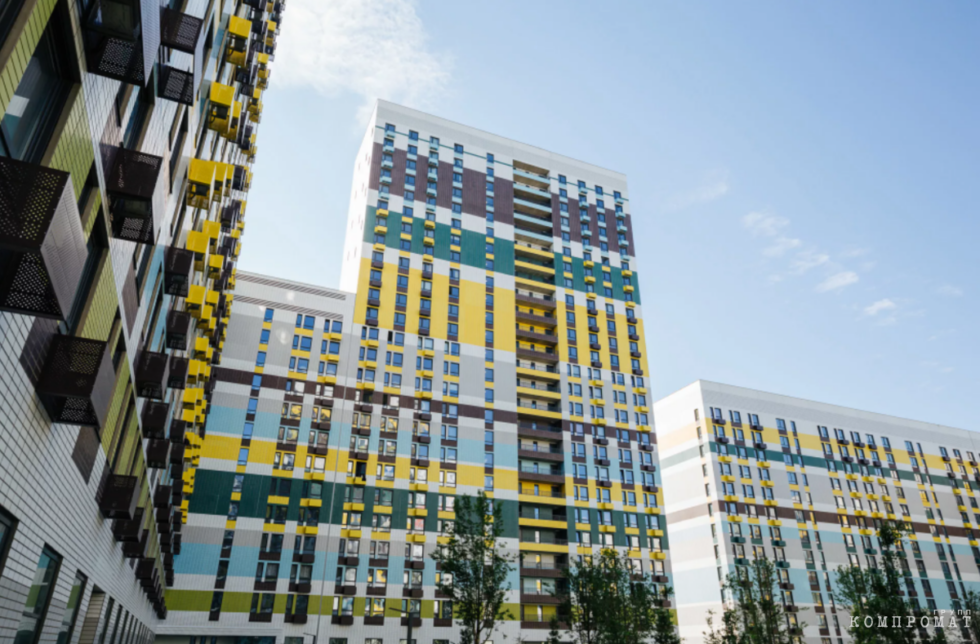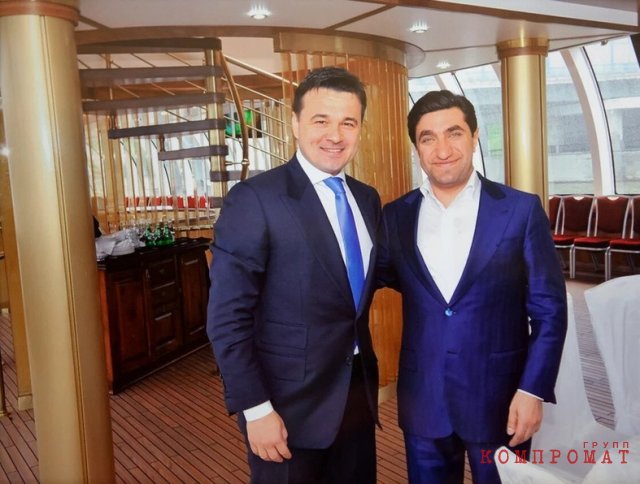
Bad neighbors
PIK group companies have begun checking compliance with migration laws. Within a month, law enforcement officials will study contracts with stateless builders and notifications about the involvement of foreign workers. How will all this end is a good question. In the recent past, the developer essentially got away with scandalous stories involving workers from Central Asia.
This time, too, the company has already stated that “PIK complies with all the norms of the labor legislation of the Russian Federation: all foreign citizens working in the company have all the necessary documents for employment.” Some telegram channels wrote that representatives of the developer allegedly completely denied the very fact of inspections by the Ministry of Internal Affairs.
It is easy to find explanations for the confident statements of the developer’s representatives that there will be no problems with inspections. Scandals involving illegal migrants at PIKovsky construction sites have been happening almost every month for several years in a row. But so far, neither regulations, nor inspections, nor fines have helped solve the problem.
“They’re not here”
A fresh story just recently spread across social networks. In the basement of the Ilmensky 17 residential complex from PIK, residents found a local plumber who brightened up his leisure time by organizing orgies in the technical rooms of the house. Residents say that participants in these outrages can be found in the office of the management company (MC).
However, there is no way to be completely sure that the incident has been settled once and for all. It is unknown whether the plumber and other participants in the orgies have housing, or whether the basement premises of the entrusted residential complex were their only refuge. If the employees of the management company have nowhere to go, it means that unwanted neighbors will appear in the technical premises again. Unless they behave more quietly. At best.
Shareholders of PIK projects that have not yet been completed are now forced to deal with the eviction of migrant construction workers. So, in June, the owners of apartments in the Losinoostrovsky residential complex discovered that their housing, the delivery of keys to which the developer had been delaying for four months, had in fact been occupied by builders for a long time.
In response to the indignation of shareholders, PIK then promised to check all the apartments in the residential complex being built, declaring that “such situations are unacceptable.”
The Investigative Committee also drew attention to the scandal that had broken out. They promised to check information about the residence of illegal migrants in the residential complex, and the progress of the procedural check was put under control in the central office of the department.
True, just a few weeks later the situation with unwanted neighbors repeated itself. Only in another residential complex of the PIK group.
Residents of a house on Skladochnaya Street found traces of illegal migrants living in the equipment rooms.
At the same time, according to them, employees of the management company claim that no one lives in the technical premises, and they are only used as changing rooms.
“We just need to change clothes”
The tactics of the PIK members are obvious: they are trying with all their might to hush up scandals with migrants. If residents begin to demand a trial, the migrants are immediately evicted, wait until everything calms down, after which history repeats itself.
Events apparently follow approximately the same pattern in cases involving inspections by regulatory authorities: if violations are found, the PIK pays the required fines, after which the migrants who disappeared appear again.
Thus, back in August 2016, at the construction of the Pikovsky residential complex “Green Park”, during a raid to counter illegal migration, 30 violators of migration legislation were detained. It turned out that builders from Uzbekistan, Tajikistan and Kyrgyzstan worked at the construction site illegally.
But the very next year, perhaps one of the most notorious migration scandals broke out at another developer’s site. In the Solntsevo Park residential complex, the developer fenced off the territory on which he equipped an entire town for visiting workers. It was supposed to be dismantled before December 31, 2017. However, in fact, the builders lived there for at least another year. Journalists who visited the construction camp found about 20 cabins, nine outdoor toilets, a canteen, and a shower. And in the summer, small vegetable gardens even appeared on the territory of the town.
In official comments, PIK representatives insisted that no one lives in the construction camp, and the cabins are needed so that the builders have a place to change clothes.
In the summer of 2019, the “non-existent” construction camp was still in place. Moreover, by that time, PIK had already accumulated many orders from regulatory authorities demanding the demolition of these objects. But most of them seem to have been ignored.
Excessive profit, period!
The presence of migrants at Russian construction sites is usually explained by a labor shortage: they say, there is no one to work, so we have to import cheap workers from abroad. And the lack of legal registration is just a way to save money.
But apartment prices continue to rise all these years, and the quality of construction is only getting worse. The question naturally arises: is there any point in such savings and such workers? After all, it turns out that in such a situation the only winner is the developer, who builds all the new residential buildings on the cheap and sells them at a high price.
By the way, scandals with the quality of construction at PIK facilities occur almost more often than problems with illegal migrants. According to telegram channels, at the end of August in the capital’s Bolshaya Akademicheskaya 85 residential complex, ten floors were flooded due to an accident; in a newly built house on Sirenevy Boulevard, the ceiling collapsed in the entrance, and in the Buninskie Luga residential complex, due to errors in laying communications, a real “sea” formed on the street.
The question arises: in this situation, are those same migrants needed on construction sites? Maybe the developer should start hiring skilled workers? However, in this case, developers will have to accept a significant reduction in profits. But, as practice shows, they are not ready to do this, no matter what.







